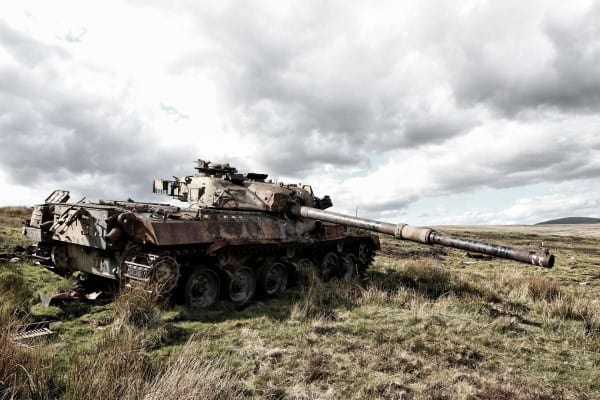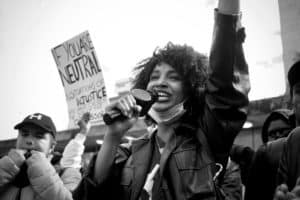This page contains affiliate links. This means if you a follow a link and make a purchase, at no additional cost to you, Humanitarian Careers will receive a commission. Thank you for supporting the site.
The United Nation’s mandate is to ensure international peace and security by encouraging dialogue between nations. In fact, the UN is regularly criticised for failing to prevent conflicts and lacking the strong actions needed to stop wars. In many ways this is fair, there are many conflicts the UN has failed to stop. However, people are often overly harsh on the UN. Actually, there are several wars it has stopped throughout its history.
2006 Lebanon War
The 2006 Lebanon War was a conflict between Israel and Hezbollah – a Palestinian militant group based in Lebanon. The conflict lasted from July 12th until 14th August and was ended by a United Nations brokered ceasefire. The 2006 Lebanon War is often cited as one of the most successful times the UN has stopped a war.
The conflict began following cross border raids by Hezbollah into Israel. However, there has been ongoing conflicts between Israel and Lebanon since the creation of the state of Israel in 1948. It ended when the UN Security Council unanimously adopted Resolution 1701 which called for an end of the conflict.
Following the Security Council vote, the United Nations was able to have both Israel and Lebanon approve the resolution, highlighting the key role the UN played in stopping the conflict.
The UN resolution ending the 2006 Israeli-Lebanon War also expanded the mandate of United Nations peacekeepers in the region. The United Nations Interim Force in Lebanon (UNIFIL) had been in-place since 1978, but the expanded mandate further helped to end the war as both sides could agree to an increased role for the UN in maintaining peace.
World War Three
Yeh, really! The Cuban Missile Crisis is generally considered to be one of the closest times the world came to nuclear war and the United Nations played a key role in stopping it.
When the Soviet Union began moving nuclear missiles to the island of Cuba, off the coast of America, the US made genuine threats to go to war. A tense stand-off arose between America and the Soviet Union when the US set-up an embargo to prevent Soviet missiles reaching Cuba and the Soviet sent ships to test the blockade.
U Thant, the United Nations Secretary General at the time was a key mediator between the Americans and Soviets. By relaying information between them. U Thant was able to defuse the situation and eventually the Soviet ships turned back from Cuba.
The role the United Nations played in the Cuban Missile Crises and in preventing an escalation of the Cold War is vital. Seen as an impartial and neutral mediator, U Thant and the United Nations was able to bring the Soviet Union and America back from the brink of war and genuinely prevent the possibility of a nuclear confrontation.
Côte d’Ivoire Civil Wars
The First Ivorian Civil War was a conflict in the African nation of Côté d’Ivoire that began in 2002. The United Nations played a key role in ending it.
Following the 33 years rule of dictator Félix Houphouët-Boigny Côté d’Ivoire began the transition to democracy. Issues around the democratic process, combined with a long-term lack of development and a major economic downturn led to instability and conflict throughout the Ivory Coast. By 2004, the country was split between the rebel held north and government controlled south.
The United Nations mission in Cote d’Ivoire began in 2003 and its mandate was to implement the ceasefire signed between the government and rebels. The United Nations went on to oversee three elections within the country, completing the transition to democracy and ending the conflict.
The United Nations also disarmed over 70,000 rebels, assisted 250,000 displaced people to return home and ran extensive projects to build social cohesion throughout the Ivory Coast.
Although some violence continued, including the short Second Ivorian Civil War from 2010 – 2011, by 2017 the United Nations mission was seen as a success and was concluded. The UN is highly praised for ending the conflicts in Cote d’Ivoire and stopping extensive further violence.
Timor-Leste
After gaining independence from Portugal in 1975, East Timor was occupied by Indonesia. Decades of conflict followed as rebel groups fighting for sovereignty clashed with Indonesian forces. The conflict ended in 1999 when the United Nations led an exercise in ‘self-determination’, which was recognised by Indonesia, who withdraw their army.
The UN played a vital role in stopping the war in East Timor. When long-term Indonesian dictator Suharto resigned, the UN negotiated between Indonesia and Portugal to hold a referendum on independence in East Timor.
Following the vote for independence and the withdrawal of Indonesian troops, the UN established UNTAET – the UN Mission in East Timor. UNTAET played an important part in stopping the conflict in East Timor as it provided civil administration and peacekeeping forces.
The UN’s role in ending the war in East Timor was fundamental. From negotiating its independence to directly governing the country between 1999 and 2002. The United Nations actions in East Timor were instrumental in ending the conflict that had cost up to 300,000 lives.
East Timor is often heralded as one of the best examples of the United Nations stopping a war.
United Nations Online Courses
If you want to learn more about the United Nations, and some of the major successes it has had, we highly recommend the online course Global Diplomacy: The United Nations in the World offered by SOAS in London. We think it provides one of the best overviews of the UN and its role in the current global order. SOAS is also one of the top universities in the world for international relations and courses related to the UN.
The Sustainable Development Goals (SDG) underpin all of the UN’s work. In order to fully understand the United Nations, and what it does, you need a basic understanding of the SDG. We think the online short course The Sustainable Development Goals – A Global, Transdisciplinary Vision For The Future offered by the University of Copenhagen is one of the best introductions to the SDG.
The University of Leiden in the Netherlands offers an online short course on The Changing Global Order. It includes a specific look at how shifting international power dynamics are affecting the current global system and the United Nations. For those wanting to understand the challenges the UN faces, this online course is a must.
Cambodia
In 1991, peace accords were signed in Paris that formally ended the Cambodian-Vietnamese War. The United Nations was instrumental in stopping the conflict.
The United Nations Transitional Authority in Cambodia directly ran the country from 1992 – 1993. This was a crucial element in ending the war as it provided military stabilisation forces and civilian bureaucracy whilst managing the transition to democracy in Cambodia.
Cambodia saw extensive fighting between 1978 and 1991. Officially known as the Cambodian-Vietnamese War, it also included the fighting that followed the Vietnamese occupation of the country. Cambodia had many armed groups that fought against the Vietnamese occupation as well as each other. These included the Khmer Rouge – the former Communist rulers of Cambodia that continued a guerrilla struggle against Vietnam and non-Communist Cambodian groups.
The complex web of conflicts in Cambodia were stopped by the United Nations in 1991. Firstly, the UN secured an agreement for Vietnam to withdrawal from Cambodia. They were then instrumental in disarming and integrating armed groups and ending the fighting.
Cambodia was the first country the United Nations directly administered, and it was key in preventing further violence.
Mozambique Civil War
Following independence from Portugal in 1975, Mozambique was plunged into decades of civil war. The United Nations helped to stop the war in 1992. The UN mission in Mozambique ran from 1992 to 1994 and is seen as a highly successful time when the UN ended a conflict.
The Mozambique Civil War was fought mainly between government troops and forces of the Mozambique National Resistance (RENAMO). The war was devastating with up to one million people killed from fighting and conflict induced famines, as well as displacing around 7.4 million people.
In 1992, the United Nations supported the signing of peace accords between the warring factions. This was followed by the deployment of 7,500 UN personnel, including peacekeepers, that oversaw the transition to democracy.
The United Nations is credited with being a key player in stopping the Mozambique Civil War. It’s sponsoring of peace negotiations was crucial to bringing all sides to the table and gaining international legitimacy for the process. The role of UN peacekeepers and civil administrators in Mozambique prevented a return to fighting.
The Mozambique Civil War is another example of a conflict stopped by the United Nations.
Guatemalan Civil War
The Guatemalan Civil War was a protracted conflict in the Central American state between the government and various left-wing rebel groups. The conflict continued for a staggering 36 years, from 1960 to 1996, until the United Nations led initiatives to end the war.
The war in Guatemala had complex origins, but was mainly fought by leftist militia groups, Maya ethnic minorities and peasants who wanted greater economic rights and opportunities. The government of Guatemala throughout the war was dominated by hard-line military dictators who received US backing.
The United Nations played a pivotal role in stopping the war. With the end of the Cold War and under the leadership of President Ramiro de León Carpio, the UN brokered peace negotiations between the warring factions. Agreements were first signed on human rights, resettlement of displaced people and on indigenous rights. These laid the foundation for the completion of formal peace accords that ended the conflict in 1996.
The United Nations was instrumental in ending the civil war in Guatemala. The UN launched a peacekeeping and verification mission in Guatemala following the signing of the peace deal to monitor adherence. This further cemented the UN’s role in finally stopping the civil war in Guatemala.
If you want to learn more about the United Nations, and the successes it has had, explore our page on the top UN online courses here.





